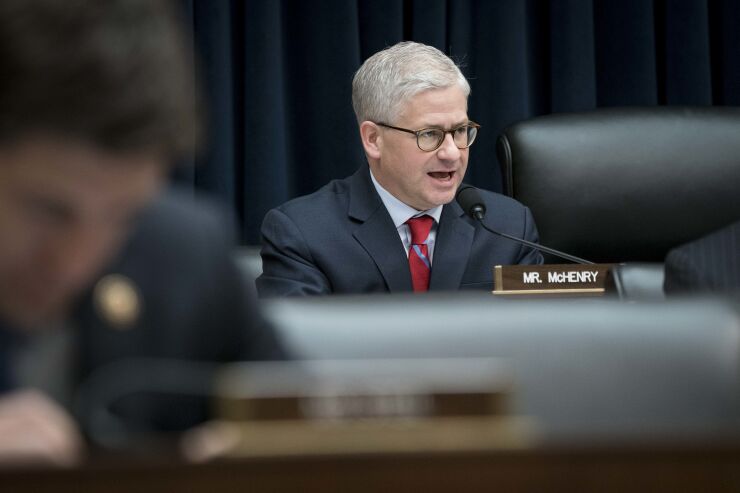
The bill aims to roll back the latest update of grids Fannie Mae and Freddie Mac use to give lower-income borrowers breaks with some cross-subsidizing increases for those more well off, while still ensuring risk-based pricing is maintained.
Supporters like Rep. Patrick McHenry, R.-N.C., chairman of the House Financial Services Committee, said they felt the regulator of the government-sponsored enterprises went too far in raising prices for higher-income borrowers and giving those with less wealth breaks.
"If you want to protect middle class borrowers in your district from a new tax, you will support this bill," McHenry said Friday.
He and other supporters have shown particular concern that in some cases, the latest price breaks have gone to lower-income borrowers further down the credit spectrum than those receiving hikes.
Opponents of the bill have noted that while there have been relative increases for higher-income borrowers and some decreases for those with less wealth, those in the latter category generally are still paying more than in the former.
Reversing the small breaks for people with lower income would be harder on them than the increases would be on their wealthier counterparts, according to a letter Americans for Financial Reform recently sent to McHenry and Maxine Waters, D.-Calif., ranking member of the Committee.
"The bill's title is ironic because it would, in fact, make mortgages more expensive for many middle-class American families," AFR said in the letter.
The price changes have on a net basis increased fees overall in line with directives aimed at rebuilding capital at the GSEs.
Federal Housing Finance Agency Director Sandra Thompson has said she feels
Whether the legislation has enough momentum to get backing from both chambers of Congress in a situation where the House is narrowly controlled by Republicans and the Senate is dominated by a slim majority of Democrats remains to be seen.





